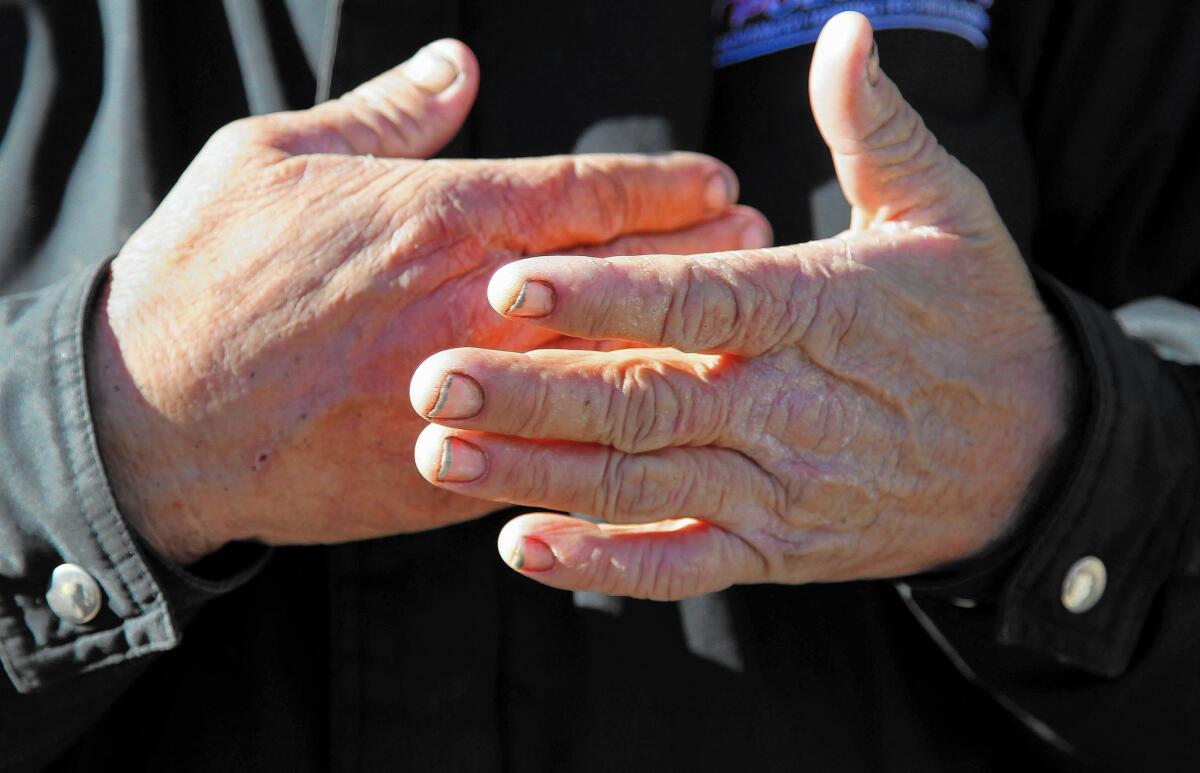San Diego expands criminal diversion program to include minor drug offenses

Reporting From SAN DIEGO — A city program focused on preventing early offenders from becoming career criminals is expanding to include minor drug offenses and illegal lodging charges brought against homeless people.
The year-old diversion program lets people avoid jail time and a criminal record for low-level misdemeanors if they complete two days of community service and pay a $120 fine.
Touted as a national model, it recently received a $415,000 federal “smart justice” grant to help fund the expansion and data tracking.
Called “community court,” the program aims to steer early offenders onto the right path by imposing swift consequences for minor, nonviolent crimes.

Lisa Biagiotti joins homeless youth social workers with Covenant House as they canvass Hollywood for 18- to 24-year-olds. An estimated 2,000 young adults sleep on the streets of Los Angeles every night. Down alleyways and side streets, Lisa meets Kr
“Early offenders in our criminal justice system don’t really get the kind of attention they need, and it shows up in escalating behavior,” said City Atty. Jan Goldsmith, who launched the program in November 2014. “When you wait down the road, it’s too late — it’s too late when they kill someone.”
The program also saves taxpayers money by keeping people out of the crowded court system, Goldsmith said.
During a one-year pilot, the program was limited to first-time offenders accused of trespassing, vandalism, shoplifting and other minor misdemeanors.
Goldsmith said he’s ready to include drug offenses and illegal lodging because he’s adding a screening system to determine whether participants need special help and a case manager to connect them to whatever support services might be appropriate.
“We’ve kind of been a little bit in the dark about what the person needs,” Goldsmith said. “The whole focus of community court is to get to them early and get to the heart of the problem. This gives us an opportunity to dig into drug cases and the homeless issue.”
Because many homeless people are charged with a misdemeanor at some point, Goldsmith said, he’s optimistic the expansion of community court could help make a significant dent in San Diego’s homeless population, which a recent survey found to be the fourth-largest of any city in the nation.
“San Diego has a lot of fine homeless programs, but there is not one strategy,” he said. “There is a lot of different strategies and not as much coordination as you would like.”
Goldsmith said he won’t be able to solve the homeless problem but that an expanded community court could make a difference.
“We’re going to slowly insert ourselves into the homeless issue and try to develop a strategy that allows the first responders to work with the housing folks and the providers in a way that gets these folks off the streets and into programs and housing,” he said.
The expansion is possible partly because of the U.S. Department of Justice grant and partly because each of the program’s original participants agreed in late November to continue beyond the first year.
“This is a win-win for all,” said San Diego County Sheriff Bill Gore, who has agreed to help fund preliminary screening of offenders. “They realize there are consequences for their actions, and the communities benefit from their program assignments.”
The local chapter of the American Civil Liberties Union has also been a supporter.
“Through community service and connection to support services, individuals are held accountable to the community without wasting taxpayer dollars on unnecessary incarceration,” said Kellen Russoniello, an ACLU staff attorney.
So far, 82% of participants — 602 of 738 — have completed their community service, paid their fine and cleared their record. An additional 177 participants are completing the program, which they must do within 90 days.
The 915 total participants represents 66% of the 1,386 people offered community court by Goldsmith’s staff, with the other 471 preferring to pursue their case in the courts or accept probation or jail time instead of community service and a fine.
Goldsmith said he was initially worried about the program being perceived as too soft on crime.
“If too many people participated, that would mean we were giving away the store and the reputation would be out there that it’s easy,” he said. “And if the numbers were too low, I’d be worried that we were being too tough.”
The county public defender’s office has endorsed the program since its inception and supports the expansion.
Garrick writes for the San Diego Union Tribune.
More to Read
Sign up for Essential California
The most important California stories and recommendations in your inbox every morning.
You may occasionally receive promotional content from the Los Angeles Times.










